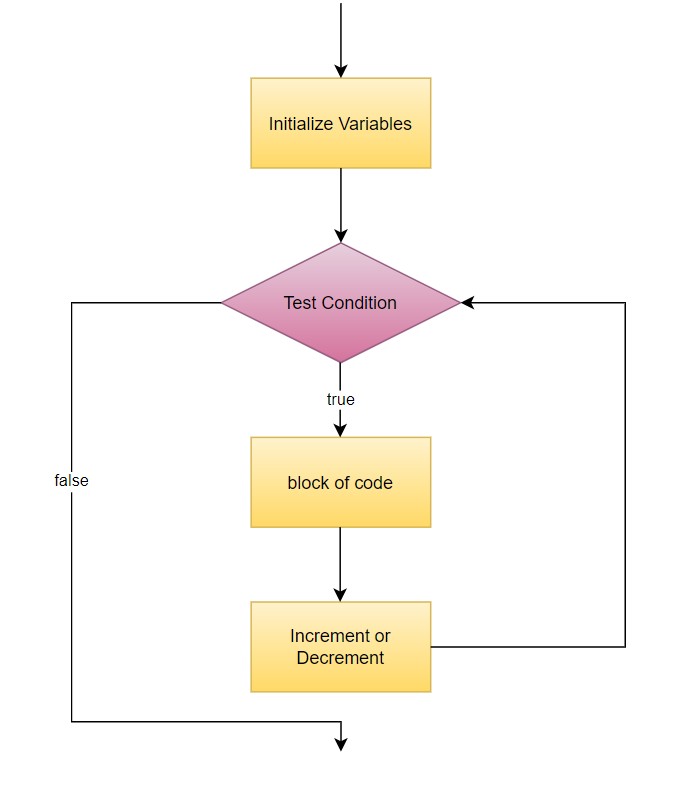for Loop
Loops in any programming language are used to execute a block of code again and again until a base condition is achieved. As soon as a base condition is satisfied, the loop is terminated and the control is returned to the main body of the program.
There are three types of loops in Java:
- for loop
- while loop
- do...while loop
for loop:

Whenever a loop needs to be run a specific number of times, we use a for loop.
Syntax:
for (initializeVariable; testCondition; increment/decrement) {
// block of code
}- initializeVariable: Initialize a new variable or use an already existing one.
- testCondition: It checks the testing condition of the loop after each iteration and returns a Boolean value, which determines if the loop should be terminated or not.
- Increment/decrement: It is used to increment or decrement the variable after each iteration.
Example:
public class ForLoop1 {
public static void main(String[] args) {
for(int i = 1; i <= 10; i++) {
System.out.println("2 * " + i + " = " + 2 * i);
}
}
}Output:
2 * 1 = 2
2 * 2 = 4
2 * 3 = 6
2 * 4 = 8
2 * 5 = 10
2 * 6 = 12
2 * 7 = 14
2 * 8 = 16
2 * 9 = 18
2 * 10 = 20
We also have a special syntax for iterating through arrays and other collection objects, also called a for-each loop.
Syntax:
for (type variable : collectionObject) {
// block of code
}Example:
public class ForEach1 {
public static void main(String[] args) {
int[] prime = {1, 3, 5, 7, 11, 13, 17, 19};
System.out.println("Prime numbers are:");
for(int i : prime) {
System.out.println(i);
}
}
}Output:
Prime numbers are:
1
3
5
7
11
13
17
19
And lastly, we have an infinite for loop, wherein the expression always evaluates to true, hence running indefinitely.
Example:
public class ForLoop1 {
public static void main(String[] args) {
for(int i = 1; i <= 10; i--) {
System.out.println(i);
}
}
}Output:
-3832975
-3832976
-3832977
-3832978
-3832979
-3832980
-3832981
-3832982
-3832983
-3832984
-3832985
.
.
.
The loop will keep on running until you halt the program.